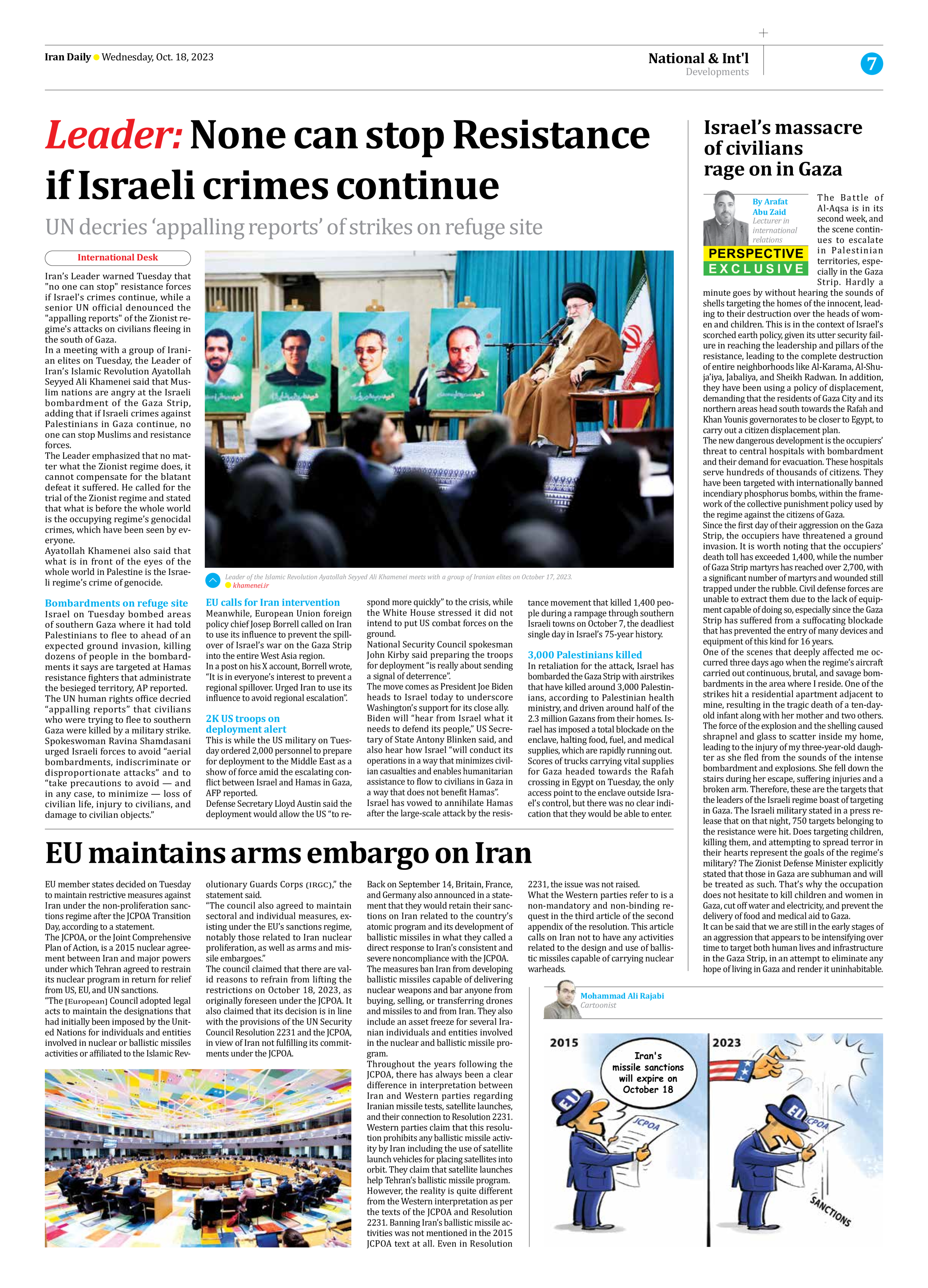
EU maintains arms embargo on Iran
EU member states decided on Tuesday to maintain restrictive measures against Iran under the non-proliferation sanctions regime after the JCPOA Transition Day, according to a statement.
The JCPOA, or the Joint Comprehensive Plan of Action, is a 2015 nuclear agreement between Iran and major powers under which Tehran agreed to restrain its nuclear program in return for relief from US, EU, and UN sanctions.
“The [European] Council adopted legal acts to maintain the designations that had initially been imposed by the United Nations for individuals and entities involved in nuclear or ballistic missiles activities or affiliated to the Islamic Revolutionary Guards Corps (IRGC),” the statement said.
“The council also agreed to maintain sectoral and individual measures, existing under the EU’s sanctions regime, notably those related to Iran nuclear proliferation, as well as arms and missile embargoes.”
The council claimed that there are valid reasons to refrain from lifting the restrictions on October 18, 2023, as originally foreseen under the JCPOA. It also claimed that its decision is in line with the provisions of the UN Security Council Resolution 2231 and the JCPOA, in view of Iran not fulfilling its commitments under the JCPOA.
Back on September 14, Britain, France, and Germany also announced in a statement that they would retain their sanctions on Iran related to the country’s atomic program and its development of ballistic missiles in what they called a direct response to Iran’s consistent and severe noncompliance with the JCPOA.
The measures ban Iran from developing ballistic missiles capable of delivering nuclear weapons and bar anyone from buying, selling, or transferring drones and missiles to and from Iran. They also include an asset freeze for several Iranian individuals and entities involved in the nuclear and ballistic missile program.
Throughout the years following the JCPOA, there has always been a clear difference in interpretation between Iran and Western parties regarding Iranian missile tests, satellite launches, and their connection to Resolution 2231. Western parties claim that this resolution prohibits any ballistic missile activity by Iran including the use of satellite launch vehicles for placing satellites into orbit. They claim that satellite launches help Tehran’s ballistic missile program.
However, the reality is quite different from the Western interpretation as per the texts of the JCPOA and Resolution 2231. Banning Iran’s ballistic missile activities was not mentioned in the 2015 JCPOA text at all. Even in Resolution 2231, the issue was not raised.
What the Western parties refer to is a non-mandatory and non-binding request in the third article of the second appendix of the resolution. This article calls on Iran not to have any activities related to the design and use of ballistic missiles capable of carrying nuclear warheads.







